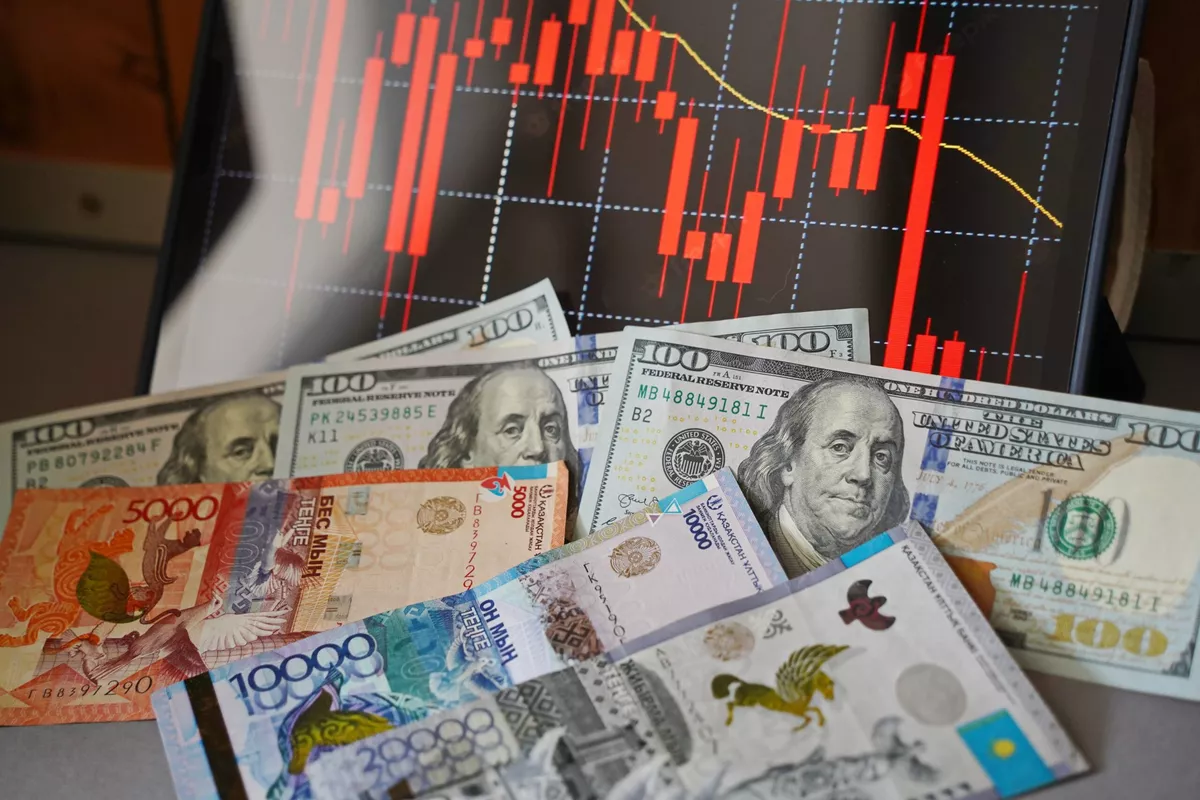
Photo credit: Shutterstock
Kazakhstan is facing a significant depreciation of its national currency, with the exchange rate for the U.S. dollar surpassing 540 tenge at currency exchange offices on July 23 and continuing to rise through July 25. The National Bank of Kazakhstan set the official exchange rate at 544.87 tenge per dollar and 639.2 tenge per euro for July 28.
Since 2015, Kazakhstan has adopted inflation targeting and allowed its currency to float freely, meaning the tenge’s value is now determined by market supply and demand rather than state controls, The Caspian Post reports citing The Astana Times.
National Bank Chairman Timur Suleimenov noted that this shift was a critical move toward a more flexible and sustainable economic model.
“Previously, when the state set the exchange rate, it led to sharp, administrative simultaneous devaluations,” he wrote on his Facebook page.
Suleimenov attributed the current weakening of the tenge to increased money supply and import demand. He noted that fiscal injections into the economy have grown by 18% year-over-year, while GDP and domestic production have not kept pace. As a result, increased reliance on imports is putting upward pressure on foreign currency demand.
“This year’s budget includes major spending on infrastructure and social projects. Large contracts are being signed, and foreign equipment and components are being purchased, further increasing demand for foreign currency and putting pressure on the tenge,” he said.
He explained that although domestic production is expected to catch up, this takes time, and imports will remain high in the short term.
Suleimenov noted that the National Bank categorizes the factors influencing the tenge exchange rate into three main groups: fundamental, market-based and speculative. He stressed that the current weakening is being driven by market-based factors such as budgetary spending, seasonal dividend payments, increased tourism, and import purchases-not speculation.
“Some suggest we intervene to stabilize the rate. That only makes sense if volatility is caused by speculative behavior. If the currency is adjusting due to market or fundamental forces, intervention won’t help and could even cause harm,” said Suleimenov.
He added that the bank is closely monitoring foreign exchange markets and stands ready to act in the event of speculation or excessive volatility. Kazakhstan’s international reserves currently stand at $52.2 billion, which Suleimenov said provides a buffer to absorb any market shocks.
National Bank Deputy Chairperson Aliya Moldabekova also commented on the situation, describing the fluctuations as short-term and largely driven by seasonal and market dynamics.
“Fundamentally, there is no justification for a weakening of the tenge. Oil prices remain high, the U.S. dollar is weakening globally, and there are no external shocks. The tenge appears undervalued,” she said to the Kapital news agency.
She pointed to factors such as increased government spending, corporate dividend payouts requiring conversion to foreign currency, and seasonal tourism as drivers of the current exchange rate pressure.
“These are natural, temporary movements reflecting the market. There is no sign of speculative activity,” said Moldabekova.
Share on social media